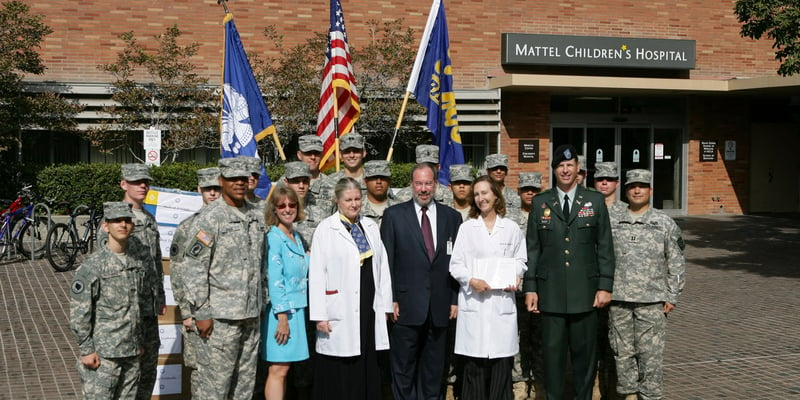UMHS was recently introduced to Global Medical Libraries, a California-based initiative that is helping improve continuing medical education in developing countries. The UMHS clinical campus in Portland, Maine will soon be making a donation of used Kaplan books, and we’ll have real-time coverage on the UMHS Instagram and Facebook feeds from a student media ambassador when it happens.
UMHS had the pleasure to chat via telephone and email recently with Valerie Walker, Founder and Executive Director of Global Medical Libraries and former Director of UCLA Medical Alumni Association. We want everyone in the UMHS community—from current Basic Sciences and clinical students to alumni—to know about Global Medical Libraries and how we can all make a difference in developing nations that often have little or no access to current medical textbooks.
The UMHS Endeavour caught up with Ms. Walker to learn more about the awesome initiative she started and how UMHS students and alumni can help.
UMHS ENDEAVOUR: Tell us a little about why and how you founded Global Medical Libraries. You started the initiative originally when it was Books Without Borders back in 2007.
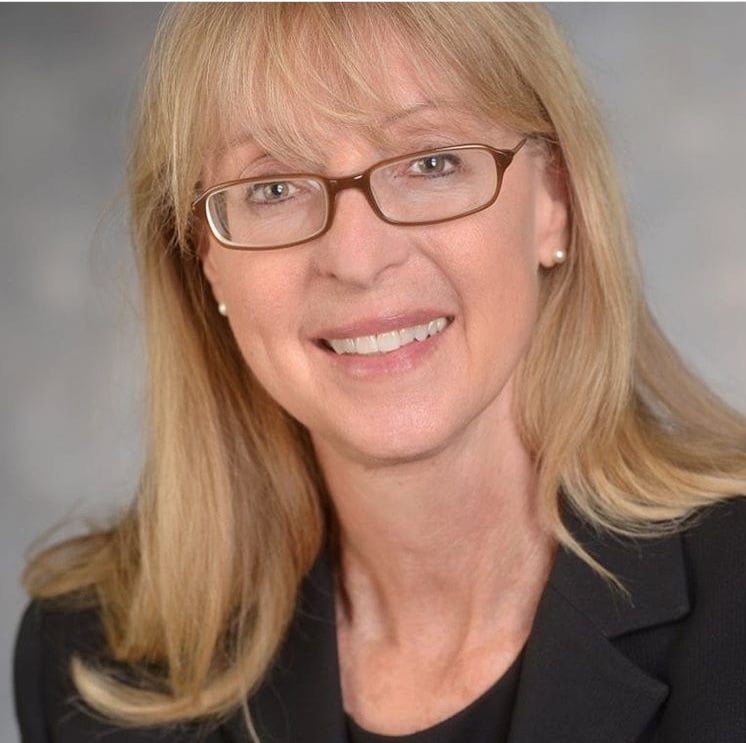
Valerie Walker, Founder & Executive Director of Global Medical Libraries. Photo: Courtesy of Ms. Walker.
VALERIE WALKER: Global Medical Libraries, originally known as Books without Borders, started as a result of a 25-word e-mail sent to the UCLA Medical Alumni Association (MAA) from a UCLA medical school graduate stationed in Iraq. She requested some donated textbooks to bring the medical libraries in the provinces of Tikrit and Salah el Din up-to-date. The project collected 2,000 pounds of educational resources, which were distributed to 11 different facilities.
During her 2006–07 Iraqi deployment, Army Maj. Laura Pacha, MD learned that the Iraqi government had sealed off the country from new medical textbooks since 1994. Fast forward to 2020: Dr. Pacha has the rank of Lieutenant Colonel and over $2.5 MM of health sciences textbooks and educational resources, such as charts, CDs, DVDs, flash cards, and videos, have been donated to 33 countries spread over five continents, at no expense to the recipients or their governments.
It’s worth noting that Books without Borders was originally going to be a one-time book drive. However, it met a need: the desire of American medical students and professionals to give books to their foreign medical colleagues. It has been a life-changing opportunity for me to create a sustainable project to improve global healthcare one book at of time. From its inception, I have been very passionate about the project. It is a true labor of love.
Need for Printed Textbooks Still Critical
How has the need for medical textbooks changed since that time?
Until developing countries have the ability to reliably access digital educational resources, the need for printed books is critical. Over the project’s history, for some institutions GML is the only source of educational materials.
Originally, the project was for medical books. Once it expanded to Afghanistan and other countries, there were requests for dentistry, nursing, physical therapy, public health and veterinarian medicine educational resources.
Over the years, GML has received requests for educational resources in French, Portuguese and Spanish. These requests are difficult to fill.
What should UMHS students know about Global Medical Libraries and how their books will be donated?
GML significantly enhances the initial and continuing medical education of healthcare professionals in communities crippled by the lack of materials, with which to teach, learn and provide healthcare of all kinds, through donated medical education resources.
GML educational materials are mailed to the local U.S. Embassy in the host country, who accepts the resources for a recipient, which is a library of an academic institution, clinic or hospital. Partnering with the U.S. Department of State ensures that shipments clear customs and do not end up on the black market or get sold for personal profit.
GML provides medical students and physicians with the opportunity to give their used educational resources a second life by donating them to someone who’s going to use them because they are unable to get the same information off the Internet. Since most of the current GML recipients are academic institutions, receiving books from medical students is very valuable because the information is up-to-date.
What types of medical education resources are requested by GML recipients? Is there anything specific that some countries really need right now?
All medical academic institutions need medical education resources covering all aspects of health and wellness, including mental health, nutrition, pre-hospital, physical/occupational therapy and pre-hospital. As long as the book contains current information and/or fundamental information, which is valid today and/or visuals (no matter the publication date), it will certainly be a wonderful educational resource for GML recipients. Patient outcomes will improve as a result of this education.
Medical printed journals contain too much text to be useful to most of the GML recipients. The only GML recipient currently requesting journals is Angola.
The academic institutions can benefit from receiving USMLE study guides, as well as basic sciences textbooks, such as biology and chemistry, and anatomy books. A current Physician Desk Reference (PDR) is a useful resource for hospitals and clinics.
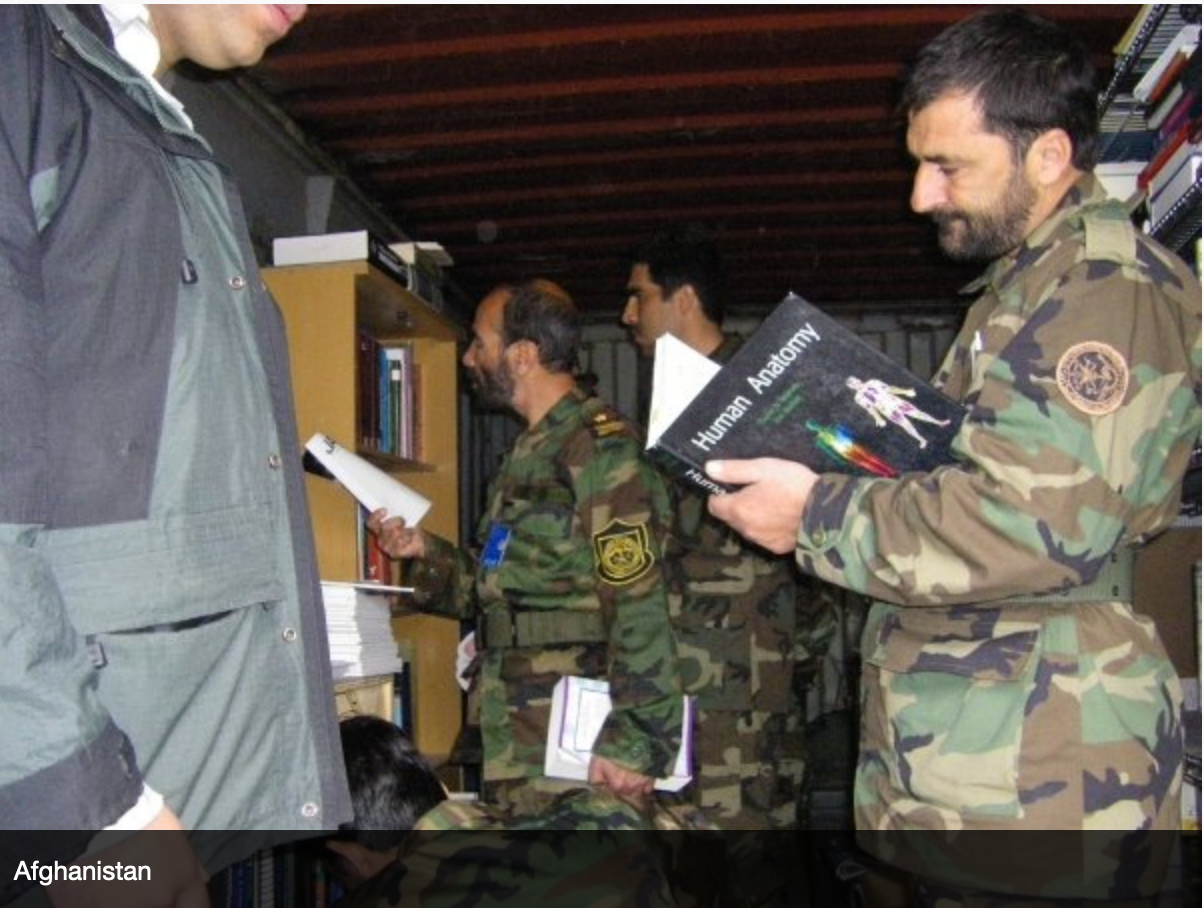 A book donation in Afghanistan. Photo: Courtesy of Global Medical Libraries.
A book donation in Afghanistan. Photo: Courtesy of Global Medical Libraries.
Which Countries Have Greatest Need for Medical Books?
What are some of the countries that currently need medical books and why is there a need in these areas?
Currently, GML recipients are in the following countries: Angola, Ethiopia, Ghana and Tanzania. From time to time, the recipients change. The list of recipients and a brief description is available on the GML website as a PDF. The need is great in all four of these countries because the institutions lack the financial resources to purchase educational resources.
You are a grassroots project and not a charity. Explain how medical students can make a real difference donating their textbooks.
GML is a California-based initiative focused on improving the standard of healthcare in developing countries by providing donated medical educational resources, which contribute to advancing the quality of pre-service education.
GML is my personal philanthropic endeavor. I underwrite the website costs and the donors, who are the lifeblood of the project, absorb the shipping costs. It seems self-serving to me to create a charity to raise a salary. There’s something pure about the intentions and motives of those who participate in GML. We do it with no personal gain––in fact, it costs us something. To quote Sister Teresa, “I alone cannot change the world but I can cast a stone across the waters to create many ripples.”
How Can You Be a World Changer?
Is there anything else you’d like to add?
As more-and-more medical students use digital educational resources, I am concerned that there will be less printed materials available to send to developing countries.
I encourage you to be a world changer. Instead of casting a stone across the waters, donate a medical book across the world. This is a way for you to influence and impact global health without a passport.
You won’t want to miss viewing the Voice of America segment, which was filmed in Afghanistan and aired in Afghanistan and Pakistan. See it at https://www.youtube.com/watch?time_continue=7&v=Z9kXa7PZ29Y
To learn more about GML, visit the website: www.globalmedicallibraries.org
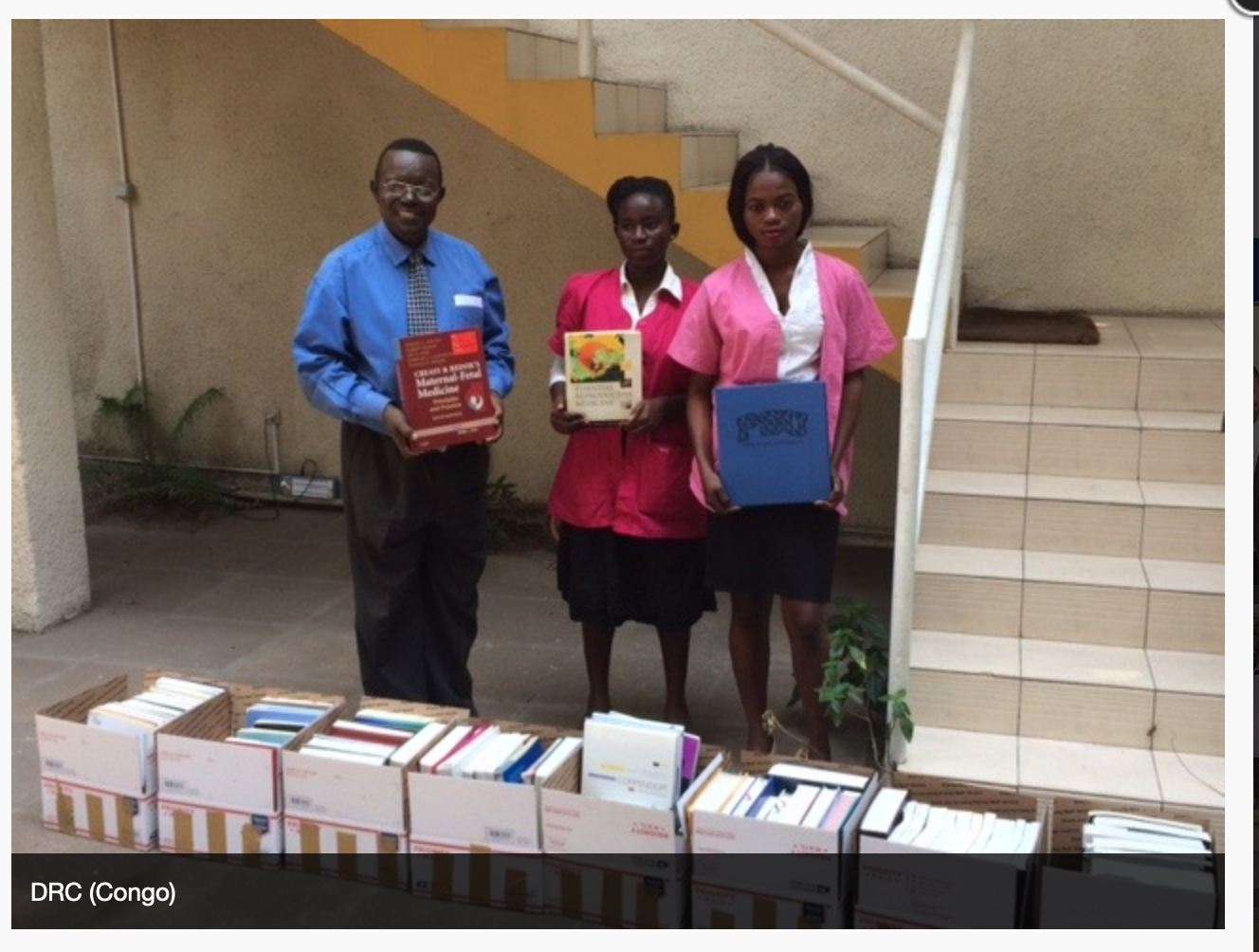
Book donation in Democratic Republic of Congo. Photo: Courtesy of Global Medical Libraries.
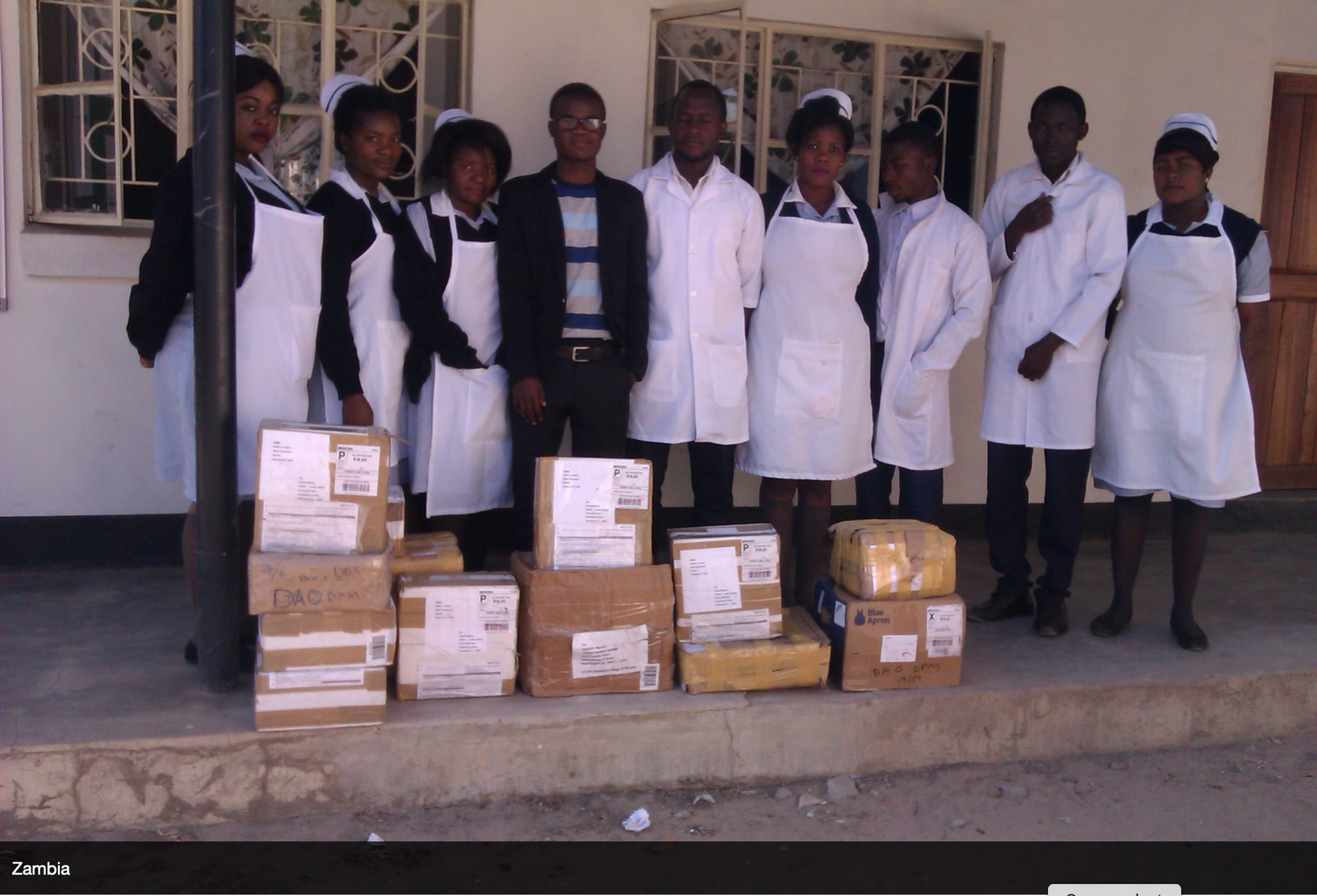
Global Medical Libraries making a difference in Zambia. Photo: Courtesy of Global Medical Libraries.
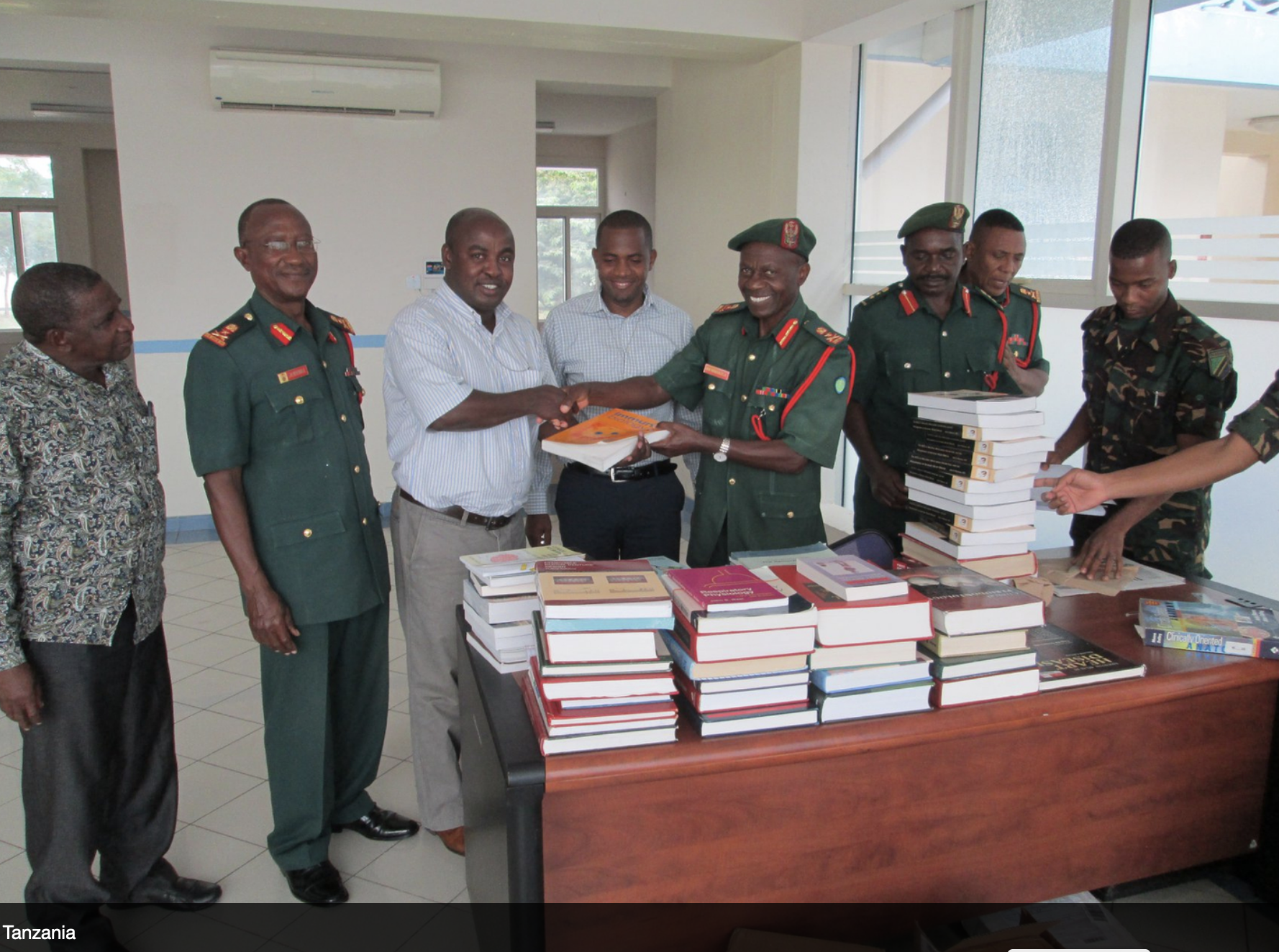 Workers in Tanzania with donated medical books. Photo: Courtesy of Global Medical Libraries.
Workers in Tanzania with donated medical books. Photo: Courtesy of Global Medical Libraries.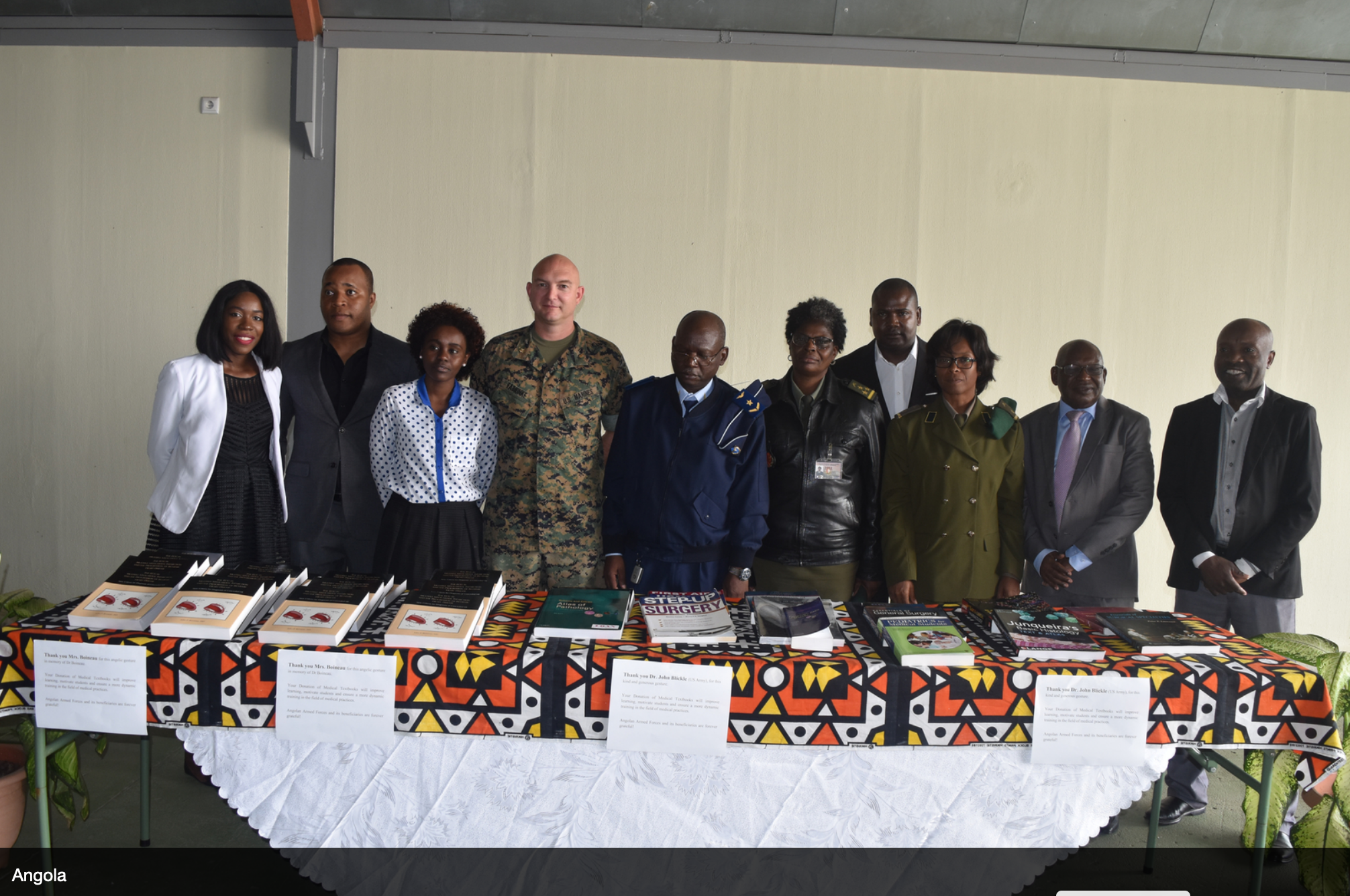
A book donation in Angola. Photo: Courtesy of Global Medical Libraries.
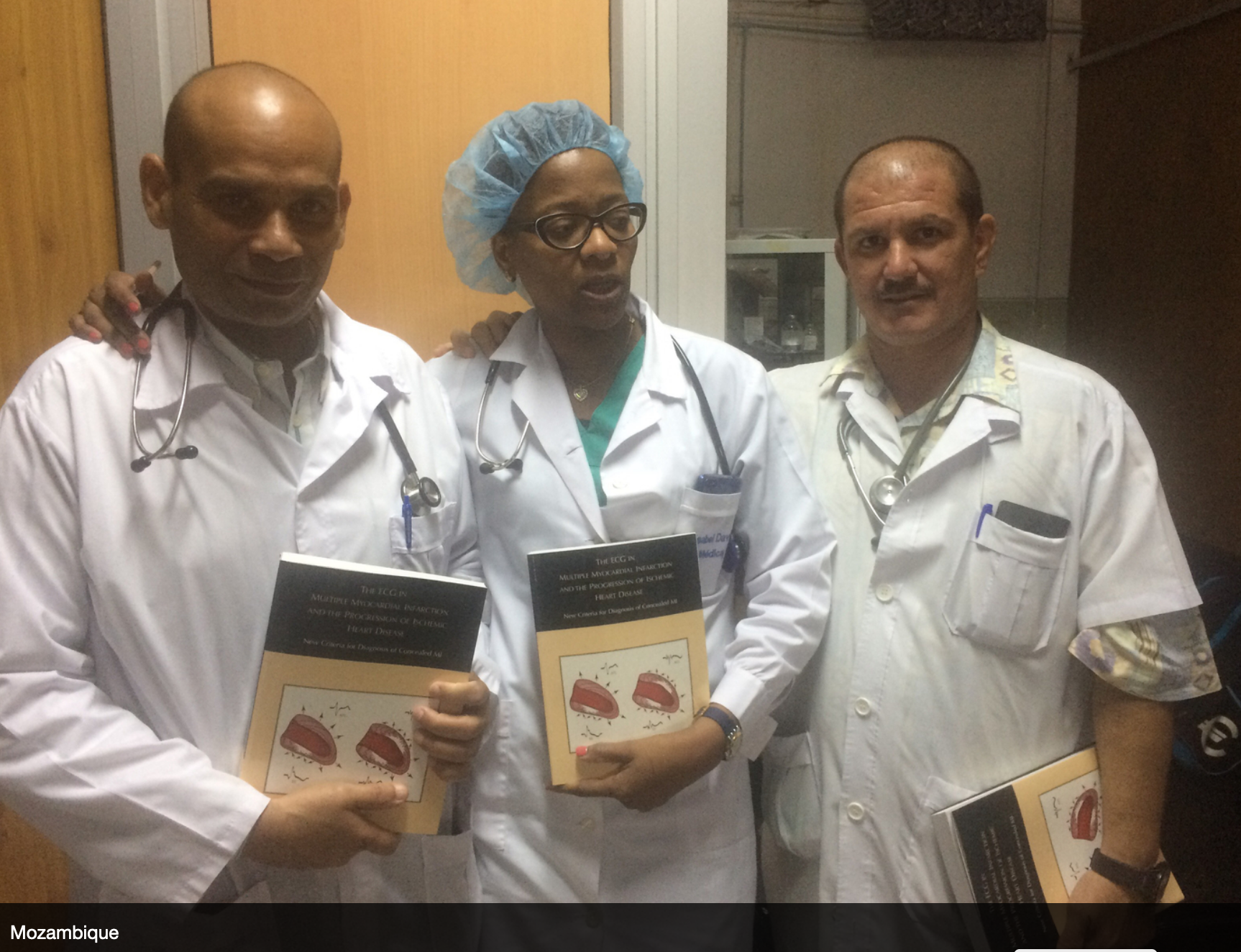 Workers with donated books in Mozambique. Photo: Courtesy of Global Medical Libraries.
Workers with donated books in Mozambique. Photo: Courtesy of Global Medical Libraries.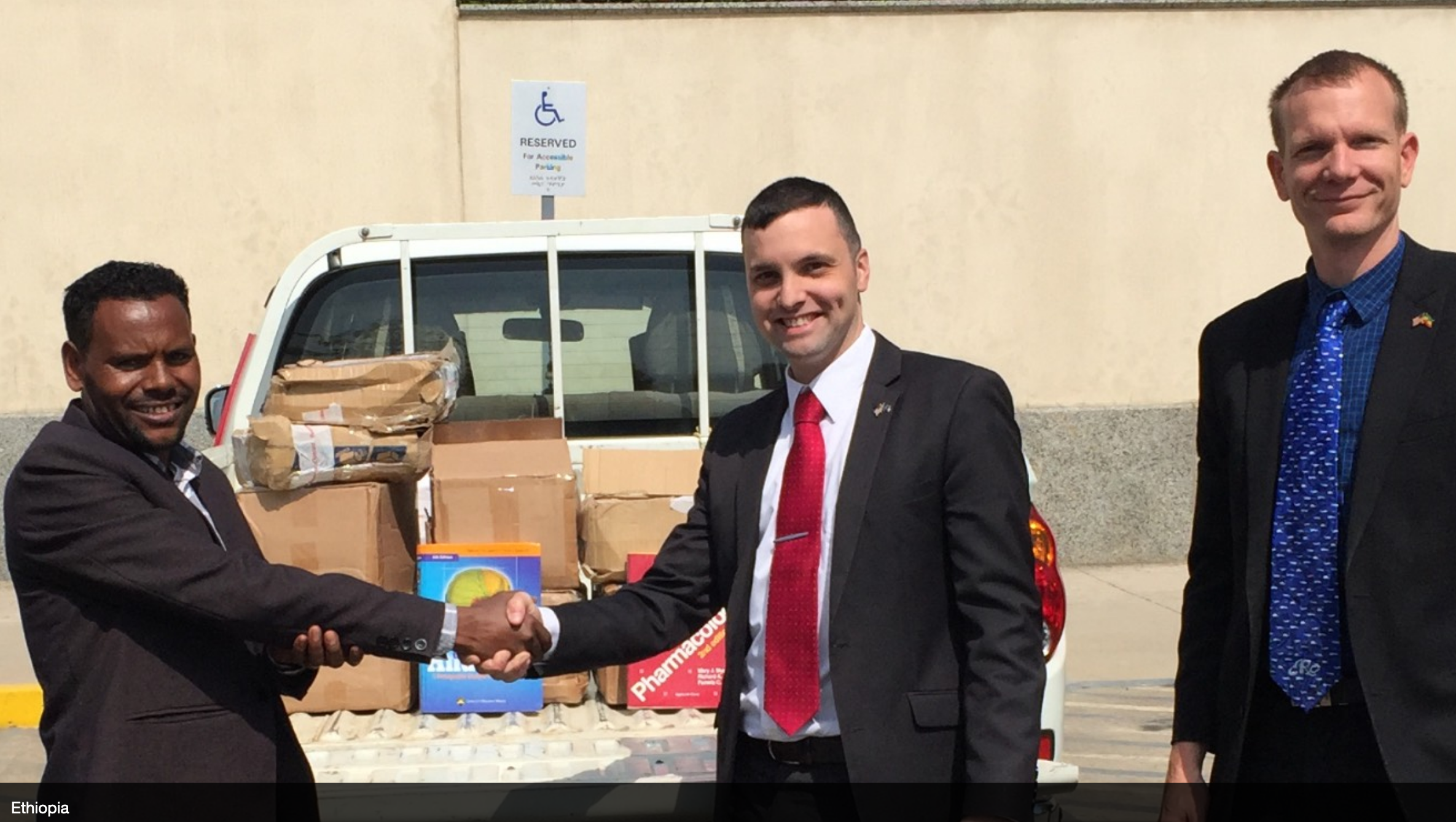
A book donation in Ethiopia. Photo: Courtesy of Global Medical Libraries.
(Top photo): GLOBAL MEDICAL LIBRARIES: UCLA held one of the first book drives. Photo: Courtesy of Global Medical Libraries.
About UMHS:
Built in the tradition of the best U.S. universities, the University of Medicine and Health Sciencesfocuses on individual student attention, maintaining small class sizes and recruiting high-quality faculty. We call this unique approach, “personalized medical education,” and it’s what has led to our unprecedented 96% student retention rate, and outstanding residency placements across the USA and Canada. UMHS is challenging everything you thought you knew about Caribbean medical schools.

Scott is Director of Digital Content & Alumni Communications Liaison at UMHS and editor of the UMHS Endeavour blog. When he's not writing about UMHS students, faculty, events, public health, alumni and UMHS research, he writes and edits Broadway theater reviews for a website he publishes in New York City, StageZine.com.













